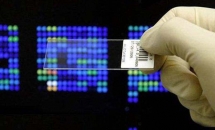Since the first recordings made of bioelectric potential of the heart by Kölliker and Muller in frog in 1856, and the first electrocardiogram in man by Waller in 1887, great technological progress has been made in the study of mechanisms and treatment of cardiac arrhythmia.
In this presentation, the speaker will be examining the scientific potential of the different experimental models in in situ heart, in isolated perfused heart, in myocardial tissue preparations and in isolated cells, in both animal models and the human model.
The lecture will focus on analysing the breakthroughs in translational research in atrial fibrillation and in secondary arrhythmia to myocardial ischaemia and cardiac insufficiency, since they are the most prevalent cases in clinical practice.
Greater knowledge of the electrophysiology of the heart, in both normal and pathological situations, thanks to experimental studies, has resulted in the success of current treatments using implantable defibrillators for the prevention of sudden death and cardiac resynchronisation pacemakers in patients with cardiac insufficiency.
Cycle: Challenges of the 21St Century the Voice of Medicine, III
Organized by: Residence for Researchers. THEY CALLABORATE:Fundació Clínic Barcelona, IDIBAPS, RESA and Col·legi Oficial de Metges de Barcelona
